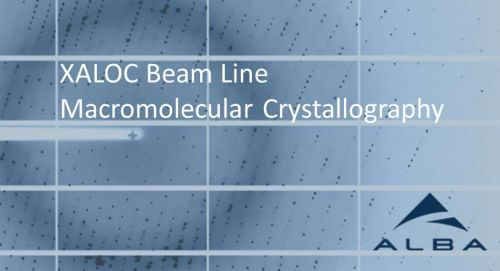
20/07/2018
Molecular mimicry does not mislead ALBA!
Molecular mimicry does not mislead ALBA!
Many intracellular pathogens use molecular mimicry to ensure their survival. A part of a protein of the pathogen resembles another protein totally different from the host and many intracellular microorganisms use this capability to interfere in cellular processes that enable their survival and replication.
Researchers from the CIC bioGUNE in the Basque Country in collaboration with other groups from the United States have carried out experiments at the XALOC beamline of the ALBA Synchrotron and I04 beamline of Diamond Light Source (UK). The results enabled scientists to solve the structure of RavN, a protein of the Legionella pneumophila bacteria that uses this molecular mimicry to trick the infected cell.
Researchers have showed that the structure of RavN has a certain structural similarity with E3 eukaryotes (a set of enzymes) despite its different composition. This result allows making progress in the understanding of the molecular mechanisms active in Legionnaires' disease that can transform into pneumonia and kill infected people.
Article: Yi-Han Lin et al. in PLOS Pathogen
Researchers from the CIC bioGUNE in the Basque Country in collaboration with other groups from the United States have carried out experiments at the XALOC beamline of the ALBA Synchrotron and I04 beamline of Diamond Light Source (UK). The results enabled scientists to solve the structure of RavN, a protein of the Legionella pneumophila bacteria that uses this molecular mimicry to trick the infected cell.
Researchers have showed that the structure of RavN has a certain structural similarity with E3 eukaryotes (a set of enzymes) despite its different composition. This result allows making progress in the understanding of the molecular mechanisms active in Legionnaires' disease that can transform into pneumonia and kill infected people.
Article: Yi-Han Lin et al. in PLOS Pathogen
More news
31/01/2015
Iranian entrepreneurs at the ALBA synchrotron
22/01/2015
What is a synchrotron and how it works?
15/01/2015
AFM2015 at ICMAB: Nanoscale Characterization of Functional Materials
08/01/2015
Ice under investigation: ICN2 and ICMAB sign an agreement with SnowWorld
23/12/2014
Kymos Pharma Services in the PTV
18/12/2014
Barcelona is one of the 20 best cities for students









